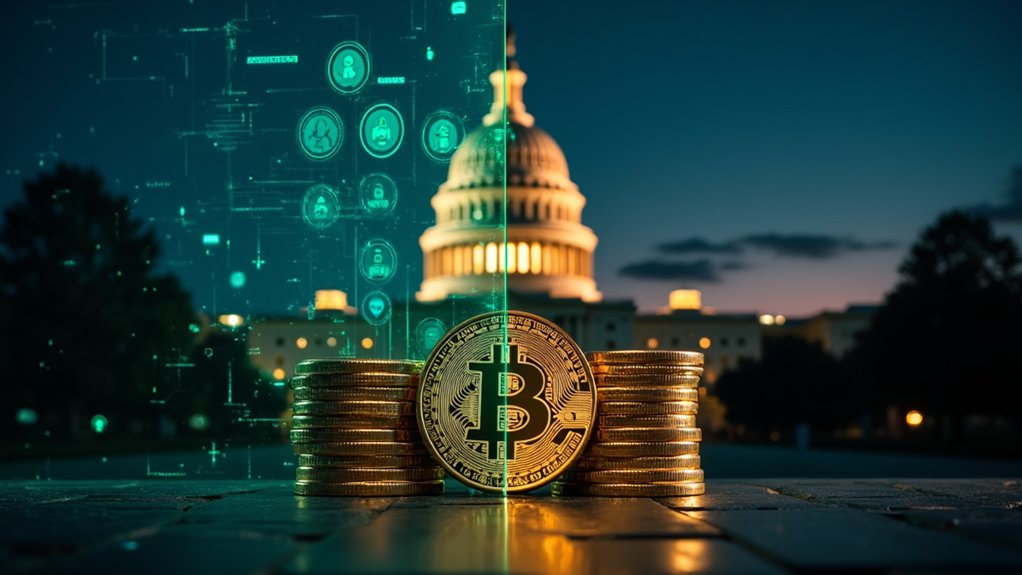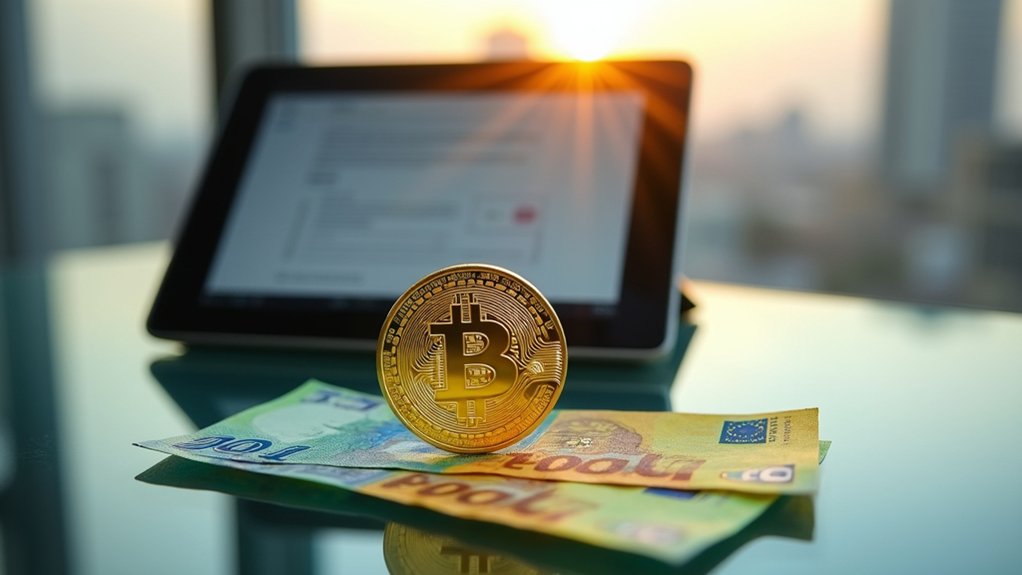In a move that’s sending shockwaves through financial markets, former President Donald Trump has announced plans to create a government-held Bitcoin reserve. The audacious proposal, formalized by executive order on March 7, 2025, would treat Bitcoin as a strategic national asset similar to gold. Let that sink in. The government wants to hodl.
The Strategic Bitcoin Reserve isn’t just some half-baked campaign promise. Trump’s order establishes both the reserve and a separate “Digital Asset Stockpile” for other cryptocurrencies. No direct Bitcoin purchases are planned initially—the reserve will be capitalized using crypto seized in criminal cases. The first-ever White House crypto summit is scheduled for Friday to discuss implementation details. The President’s Working Group on Digital Asset Markets is currently developing a precise framework for managing these holdings. Pretty convenient timing for all those enforcement actions, huh?
Republican Representative Byron Donalds is already working to make this permanent. His bill would cement the reserve into law, preventing future administrations from dismantling it. Meanwhile, Democrat Gerald Connolly is urging Treasury to scrap the whole thing, citing conflicts of interest and fiscal responsibility concerns. Shocking—politicians disagreeing about money.
Trump’s rationale is simple: Bitcoin’s fixed 21 million coin supply creates a strategic advantage. The administration appears to value the scarcity principle that makes Bitcoin fundamentally different from infinitely printable fiat currencies. The US already possesses significant Bitcoin from forfeitures. Why not leverage it? The administration views Bitcoin as “digital gold,” positioning America for cryptocurrency leadership.
The fixed supply isn’t just scarcity—it’s leverage. America’s growing Bitcoin stockpile is tomorrow’s digital Fort Knox.
Implementation won’t be easy. Current laws mandate auctions of seized assets. There are cybersecurity worries about securing large Bitcoin holdings. And transparency? Good luck with that.
The economic implications could be massive. If Bitcoin appreciates long-term, US finances benefit. But critics warn about exposing government funds to Bitcoin’s notorious volatility. Not exactly your grandma’s treasury bond.
Internationally, the move could reshape global financial dynamics and accelerate Bitcoin adoption worldwide. Other nations might follow suit. Or they might panic.
One thing’s certain—this isn’t your typical government policy. A federal Bitcoin stash? Ten years ago, that would’ve seemed absurd. Now it’s executive order material. What a world.





